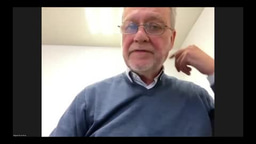Why is restricting postdoc time in Germany a mistake?

Volker Haucke is a trained biochemist and neuroscientist. He obtained his PhD at the Biozentrum of the University of Basel (Switzerland) and followed this with a postdoctoral stay at Yale University School of Medicine (USA). He held faculty appointments at the University of Goettingen and Freie Universitaet Berlin (Germany) before assuming his current position as Director at the Leibniz Research Institute for Molecular Pharmacology (FMP). Since March 2023 he serves as President of the German Society for Biochemistry and Molecular Biology (GBM). Views expressed in this post are his own.
Agata Witkowska, currently a postdoctoral researcher, is a neuroscientist and biophysicist. She completed her PhD in the Max Planck Institute in Göttingen (Germany) and subsequently moved to Berlin to work in the Leibniz Research Institute for Molecular Pharmacology (FMP). She has been active as a PhD and postdoc representative. Views expressed in this post are her own.
Under the current law regarding the Wissenschaftszeitvertragsgesetz (WissZeitVG) [in English: federal law on fixed-term contracts in science and academia] early-career researchers are allowed to be employed on fixed-term contracts by German research institutions or universities for up to 12 years (6 years doctorate + 6 years postdoc). Over the last couple of years there has been a lot of pressure to change the system and, after the last federal elections in 2021, a reform of the law was included in the coalition treaty.
On March 17th 2023, a reform draft describing proposed changes in the WissZeitVG was published by the BMBF (Federal Ministry for Education and Research), where shortening to 3 years of fixed-term contracts for postdocs was proposed. Following vast critique of this proposal, a huge German-wide debate over the definition of the postdoctoral phase has started…
Which groups will be particularly affected by the amendment, and why?
Agata: The proposed reform will affect literally almost everyone working within the academic system: PhD students who are planning to continue their career in academia, postdoctoral researchers, but also group leaders and professors who will need to manage their staff and research projects differently. The current debate also touches on the principles and wider introduction of the tenure track, as well as on distinctions between postdoctoral researchers and staff scientists. For this reason, it is really worrying that BMBF has never invited representatives of postdocs and PhD students to contribute to the debate.
Volker: Ironically, if the law would pass as proposed, it would provide a huge disadvantage to any researchers who have conducted their PhD in Germany, as only employment in Germany counts towards the limit. So, German PhD students and postdocs would be particularly affected. It would also affect women scientists and researchers with children in general disproportionately and unfairly as the one thing that really is limiting for their research work is time! Limiting contract duration to 3 years will kick them out of the system.
What are the problems with the way the amendment interprets the term qualification?
Agata: Various groups contributing to the current debate do not agree whether the postdoctoral phase is in fact a “qualification phase” for the research career that could follow. This leads to differences in the view of whether fixed-term contracts are realistic for the postdoc phase. In fact, making more permanent positions in the system would clog it and block the next generations of postdoctoral researchers; therefore, so far, the “postdoc phase” is by definition only temporary.
Volker: A postdoc or a junior group leader typically does not acquire a formal qualification but conducts research on the way to complete scientific independence. The standard for what is considered a competitive track record is defined by international scientific standards – no matter what German unions or politicians prefer to decide by law. Typically, a postdoc in biochemistry, biomedicine or the life sciences in general takes about 4–5 years followed by a more than 5 year-long period as a junior PI. Now, the problem of the German system is that tenure-track career paths are missing at most institutions and the university system suffers from severe underfunding resulting in a ridiculous ratio of faculty to students. So, the problem is not how you define "qualification". The problem is the lack of a general tenure track and enough money to support this system switch.
What are the key dangers for German research landscape considering the proposed changes in WissZeitVG ?
Agata: Indeed, shortening the limit for fixed-term contracts for postdoctoral researchers poses potential serious dangers for science in Germany: a lot of German and international young researchers determined to continue their career in science and reaching tenure-track position in the future will most likely decide to work abroad where the situation is less stressful. The ones who decide to stay in Germany will potentially choose less risky and innovative projects to fulfill the need for publishing within this short 3-year time window proposed by the BMBF. This could potentially result in fragmented publications. As a result, such postdocs will be potentially less competitive at the next career stage, where they will be compared with colleagues who were allowed to participate in longer and potentially more complete projects abroad.
Volker: For research labs this would be a major blow: Postdocs could vanish completely from the system with detrimental consequences for the quality of science in Germany. Alternatively, PIs might choose to hire two consecutive 3-year generations of postdocs to complete a major research study. The first postdoc does the groundwork, the second harvests the paper – how unfair! Moreover, young PIs running their first independent labs would almost certainly decide against Germany as a workplace. With all these negative vibes I predict that science-driven study programs (e.g., biochemistry, molecular medicine, molecular biology) will become far less attractive to students, hence, eventually, even industry and other non-academic sectors will suffer from this crazy decision.
What is needed for German academia to become competitive again?
Volker: The Alliance of Science Organizations has made very smart suggestions as to how the system could be reformed to serve the requirements of science and the rightful demand for better career planning for young scientists alike. Specifically, they propose a 4-year postdoc period followed by an evaluation that could lead to either of three options:
- Seeking a job outside academia.
- A permanent non-professorial job within academia (e.g. a teaching position or as a technology specialist).
- A junior PI position on a career track towards a permanent professorship that could last for 6 years. If flanked by a strong financially supported program to establish tenure track at universities, this could become a true game changer.
Agata: Changes in the German academic system are definitely required. In a way, I think it is good that the proposed changes in WissZeitVG triggered such discussions. What I wish for is that the postdoctoral phase is considered as a valid and crucial stage in the academic career (not just ‘in between’ PhD and group leader) that lays the ground for scientific independence and the future scientific direction. As such it should get more structured support from the system: from research institutions and from principal investigators. Postdoc-targeted courses and mentoring programs should become more widespread and easily accessible. Moreover, as proposed by the Max Planck Society in their guidelines for the postdoc stage, regular consultations with the advisor as well as independent experienced scientists on career prospects should become a norm.
Have you considered moving abroad? Why, and what stopped you doing it?
Agata: In general, I am very fond of the German research culture. However, if I have to choose between being “out” from the academic system or continuing doing my research in another country I will move abroad as my professional goal is to move science forward and, in the future, educate new generations of scientists. Perhaps, it is easier for me being a foreigner in Germany, but I am sure that many German-born researchers will feel the same way.
Volker: I worked in Switzerland and in the US during the early stages of my career. A law such as the one proposed would be unthinkable in the US and almost certainly be considered to violate the constitution. Right now I am willing to fight, but indeed, if the battle were lost, I would consider seeking a job elsewhere, likely in the US.
Top image of post: lab at Leibniz Research Institute for Molecular Pharmacology (FMP), by Monique Wüstenhagen.





Join the FEBS Network today
Joining the FEBS Network’s molecular life sciences community enables you to access special content on the site, present your profile, 'follow' contributors, 'comment' on and 'like' content, post your own content, and set up a tailored email digest for updates.